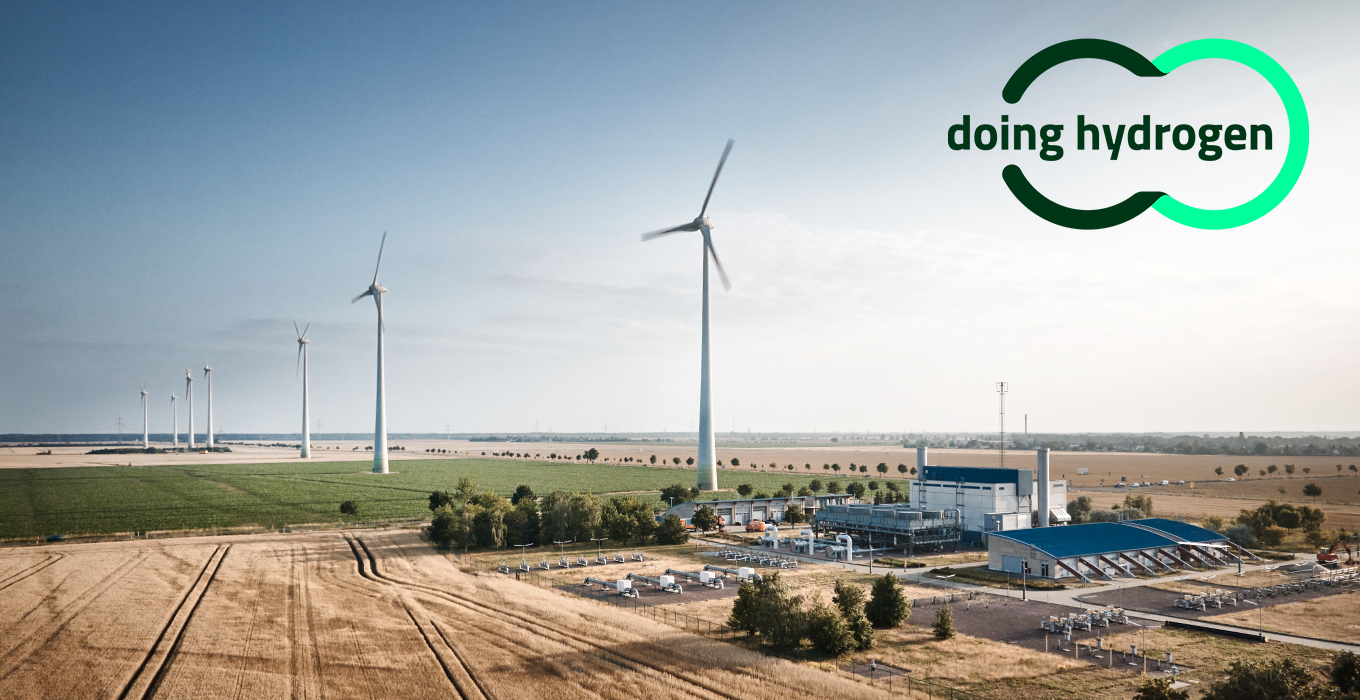doing hydrogen
A powerful hydrogen hub for Eastern Germany
The collaborative doing hydrogen project links together hydrogen projects in Mecklenburg-Western Pomerania, Brandenburg, Berlin, Saxony and Saxony-Anhalt to form an efficient hub. The project partners cover the entire hydrogen value chain, from production through to transport and the industrial use of hydrogen.

Hydrogen for Rostock, Greater Berlin, Eisenhüttenstadt and Leipzig
The specific projects implemented by producers and users of green hydrogen are a key part of doing hydrogen. They are linked by a comprehensive and efficient pipeline system comprised of more than 600 km of lines between Rostock, Greater Berlin, Eisenhüttenstadt and Leipzig. doing hydrogen brings together the interests of importers, retailers, transporters and consumers. Connections to the future core H2 network, the European Hydrogen Backbone as well as to storage facilities ensure a high level of flexibility and secure supply.
The doing hydrogen partner companies
The hydrogen hub is backed by innovative companies that are committed to the energy transition and a strong economy in Eastern Germany.
ONTRAS operates the 7,700-kilometre long pipeline network in eastern Germany and is responsible for the reliable and efficient transport of gaseous energy - today and in the future. We are actively shaping the development of a German hydrogen network, integrated into the European hydrogen infrastructure. With the ONTRAS start network for hydrogen and the two pipeline projects doing hydrogen and Greens Octopus Mitteldeutschland, ONTRAS is laying the foundation for the eastern German hydrogen infrastructure.
ENERTRAG provides a comprehensive range of services related to renewable forms of energy. We efficiently combine electricity, heat and mobility in all areas of life. As an energy producer with an annual production of 1.5 TWh in its portfolio and a service network made up of over 1,120 wind turbines, we know from our own experience what is important for our customers. With over two decades of experience in Europe, our some 540 employees combine all the skills and expertise required to successfully operate and efficiently maintain our systems, as well as implementing citizen-oriented planning and the reliable construction of energy plants and grids up to complete interconnected power plants.
The building materials company CEMEX operates on a global scale with its cement, ready-mixed concrete, mineral resources and urbanisation divisions. Through its sustainable products and solutions, the company aims to contribute to a better future. This means CEMEX focuses on the circular economy along the entire construction value chain and is a pioneer when it comes to promoting the use of new technologies.
CEMEX has set itself the goal of reducing CO2 emissions by 55% across Europe by 2030. The company has also committed to delivering carbon neutral concrete globally by 2050.
In order for the energy transition to succeed, metropolitan areas and large cities like Berlin need a heating transition above all. To this regard, Berliner Energie und Wärme (BEW) is driving forward the decarbonization of urban heating with partners and thus supporting the goals of the state of Berlin: climate neutrality by 2045. BEW is already actively working on the integration of green hydrogen to create a fossil-free urban heating and electricity supply.
The APEX Group is one of the pioneers of the green energy transition. The company is headquartered in Rostock/ Laage. It enables customers to convert their own and conventional energy supply to green hydrogen in a decentralized manner. This includes project development, engineering, procurement and construction as well as management and maintenance. In recent years, APEX has developed its own hydrogen pressure storage system together with the Fraunhofer Institute in order to guarantee a reliable supply. Together with established research institutions (especially the Leibniz Institute for Catalysis), the Rostock-based company is currently developing the next major innovation: the chemical storage of hydrogen. In March 2021, the company commissioned what was then the largest network-connected hydrogen plant in Europe. The APEX Group will supply their company location and, in the future, the adjacent industrial park in a completely CO2-neutral manner.


